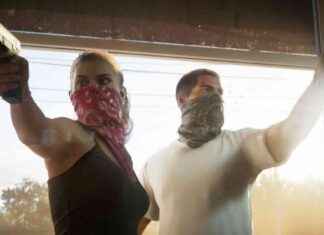Gerard Piqué is in the news for his activity off the pitch. Various information recently revealed a meeting with Xavi in ??which the coach asked the footballer, one of his captains, to focus his efforts on his performance and spend less time on his life as a businessman. All this, shortly after Piqué monopolized the spotlight for his business with the Spanish Football Federation and its president, Luis Rubiales, regarding the Spanish Super Cup. The claim of the coach to the footballer, beyond the sporting debate, also opens a legal debate that deepens the limits of what a football club can claim from its players. Are Xavi and Barça ready to veto Piqué’s business activity? Could they apply punishments for it?
“A club or the coach of a soccer team cannot punish a player with explicit sanctions for carrying out economic activities beyond his profession on the field of play,” Toni Roca, CEO of the Sports Law Institute and the firm, begins to explain. specialized in football Himnus. Roca, yes, adds that the casuistry is large and depends on the contracts signed between the parties: «In the case of Barcelona we do not have Piqué’s contract, but contracts leaked to public opinion such as that of Neymar or Messi’s. It is to understand that, in this type of questions, they will not be different from the one that Piqué has. These types of clauses are usually standard. You can change the text, but not the essence.
These documents include provisions related to the ‘adequate life regime’. This is called in various contracts. “These are clauses that establish that there will be an exclusive dedication, unless expressly authorized by the club. But then they expand that this authorization is not necessary when such activities are “compatible with the practice of professional football (…) or with the locker room instructions”, “Roca specifies. “It includes rest, travel, training schedules, games… and in general everything that does not affect the player or the club,” clarifies the lawyer. It is this last point, that of vetoing “activities that restrict the necessary physical rest”, which opens the door for the club and Xavi to prohibit Piqué, for example, activities that go beyond a certain time and that may affect his conditions to train with the rest of his teammates. This section would include, for example, interviews on late-night television programs or event presentation events prior to training sessions, as happened with a recent cancellation of their presence to publicize the latest edition of the Davis Cup.
“But beyond specific vetoes of this type, Piqué’s business activity cannot be legally restricted. The footballers’ own contract allows them to dedicate themselves to other activities, as long as they are compatible with the practice of football (and Piqué’s businesses are) and neither affect his rest, nor harm the image of the footballer or the club, ” warns Roca, also a collaborator of the Argentine Austral University, one of the most relevant education centers in Latin America.
It is on this last point, that of the club’s image, the only one in which Xavi or Barcelona could exert some pressure, although, according to Roca, it would be legally difficult for it to result in a sanction or veto of the footballer’s activities. “Regarding the image, there could be a debate after, for example, the leaks about Piqué’s business with the RFEF. But for a punishment to be applied or to request him to cease his business, it would have to be a scandal of much greater magnitude than the one revealed in those reports. We are not in such a scenario. There was a momentary stir without affecting the image of the club. In any case, to that of the player, and it is also something debatable, “concludes the lawyer.











